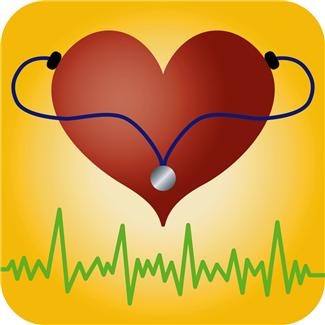 February is National Heart Month. Heart disease is the leading killer of men and women in the U.S. As part of the awareness efforts, we wanted to share some important heart health and safety tips for your at home health care.
February is National Heart Month. Heart disease is the leading killer of men and women in the U.S. As part of the awareness efforts, we wanted to share some important heart health and safety tips for your at home health care.
First, know your risk factors and family history and see your doctor regularly for a wellness checkup and preventative screenings. Medicare now covers an annual wellness visit and most preventative services.
Practice a heart healthy lifestyle to help with controllable risks. Eat a healthy, balanced diet and try to maintain a healthy weight. Stay active and exercise (as appropriate, advised by your doctor). Quit smoking. Manage stress. Monitor cholesterol levels, blood sugar, and blood pressure and work with your medical professional on ways to reduce high levels.
In addition to heart health and prevention, it is also vital to be prepared to deal with cardiovascular emergencies. You should know the signs of heart attack and stroke:
Most heart attacks involve discomfort in the center of the chest (pressure, squeezing or pain). You may also feel pain (or discomfort) in other areas such as one or both arms, the back, neck, jaw or stomach; shortness of breath; and possibly symptoms like nausea or breaking out in a cold sweat.
For strokes, use the F.A.S.T. acronym:
Face drooping
Arm weakness
Speech Difficulty
If a person shows these symptoms, it is Time to call 911.
More information on the signs of heart attack and stroke can be found at The American Heart Association’s site.
For your at home health care, you can take a couple steps to prepare in case of emergency. First, especially if you live alone or have current medical issues, consider getting a personal emergency response system. These buttons (some of which now have additional security features such as monitoring, medication reminders and fall detection) can ensure you get help when needed. Unfortunately, you cannot always get to the telephone in a medical emergency, so having one of these buttons on can be a life saver. These systems are typically connected with a call center service (most systems carry a monthly fee for this service). The service will contact 911 in emergency situations such as signs of a cardiovascular incident (or if you cannot respond to tell them what is wrong), but they’re also there in case you are not sure if you need help or need the assistance of a neighbor or family member (such as perhaps in the case of a minor fall).
Every senior should have a Vial of Life (also known as the File of Life) at home. The Vial of Life contains key medical information which helps emergency personnel if they come to your home. You complete the form, which includes details such as allergies, medical conditions and medications. The emergency personnel know to look for this information. (The “vial” program is so named because the paperwork typically went in to a “fake” medication vial in the refrigerator, with a sticker on the door to indicate its presence. Many programs now use a “file” or pouch which contains the same paperwork and is stuck to the refrigerator door.) You can also include copies of relevant paperwork in or behind the pouch, such as advance directives.
There’s a non-profit Vial of Life project website where you can find more information and get free kits. Most fire and police departments, senior organizations and the Red Cross also give out free Vials of Life to seniors.
EasyLiving offers free at home health care assessments to help you assess risks and ensure safe aging in place. Contact us online to schedule a free at home health care assessment or call us at 727-447-5845.
At home health care services such as those offered by our EasyLiving caregivers can help you stay safe and healthy at home. Just a few of the ways we help with heart health and safety include:
- Nutrition support: cooking meals according to dietary guidelines and helping you keep on track (seniors who live alone often eat processed foods, frozen meals and snacks which can be high in salt, sugar and fat and low in nutritional value)
- Assistance staying active: maintaining an exercise routine, taking walks together and support to continue favorite activities
- Safety/supervision: caregivers available at your home in case of emergency as well as to help you stay safe day-to-day
- Medication management: helping you to correctly follow your medication regimine
- Transportation to doctor’s appointments and so much more! Call today for help!







